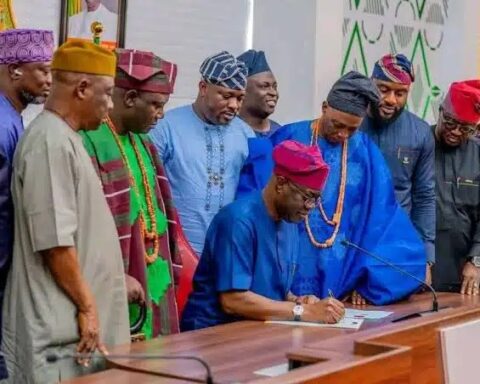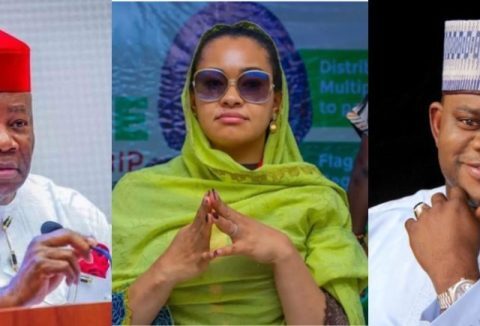Stakeholders from the Niger Delta region have cried out to President Bola Tinubu over an alleged breach of the Petroleum Industry Act (PIA), local content laws and the Constitution by the Nigeria Upstream Petroleum Regulatory Commission (NUPRC) while carrying out the bid round and licensing of oil blocks.
In an open letter dated December 31, 2024, and addressed to Tinubu, the stakeholders warned of the possibility of another round of unrest and militancy in the region, if the “unlawful” exclusion of their companies from the 2022/23 mini bid round and licensing of oil blocks by NUPRC is not revisited.
In a letter through their lawyer, Blessing Agbomhere, they noted that the alleged breach came at a time the Federal Government was working assiduously to ramp up the country’s oil production, which stood at about 1.7 million barrels per day (mbpd).
The stakeholders comprising Undiandeye Akonfe, James Okeati, Victor Okiri, Fortune Nakoro, Kenneth Anyanwu, Okwara Idika, Akpan Edem, Otetubi Tolulope and Olali Solomon called on Tinubu to, among others, set up a committee to analyse the mini bid round and licensing as carried out by the NUPRC, since the process lacked transparency and disenfranchised them, despite having fulfilled all the requirements for participation.
The stakeholders claimed that as key contributors to Nigeria’s oil and gas sector, they were unjustly and systematically excluded from the licensing process despite their substantial investments, environmental sacrifices and statutory rights under the PIA and the Nigerian Content Development and Management Act.
They alleged: “Companies were coerced into purchasing data worth millions of dollars from select offshore vendors (PGS and TSG) without alternatives. This requirement imposed severe financial burdens on participants, creating a barrier for smaller local companies, particularly those in the Niger Delta.
The stakeholders comprising Undiandeye Akonfe, James Okeati, Victor Okiri, Fortune Nakoro, Kenneth Anyanwu, Okwara Idika, Akpan Edem, Otetubi Tolulope and Olali Solomon called on Tinubu to, among others, set up a committee to analyse the mini bid round and licensing as carried out by the NUPRC, since the process lacked transparency and disenfranchised them, despite having fulfilled all the requirements for participation.
The stakeholders claimed that as key contributors to Nigeria’s oil and gas sector, they were unjustly and systematically excluded from the licensing process despite their substantial investments, environmental sacrifices and statutory rights under the PIA and the Nigerian Content Development and Management Act.
They alleged: “Companies were coerced into purchasing data worth millions of dollars from select offshore vendors (PGS and TSG) without alternatives. This requirement imposed severe financial burdens on participants, creating a barrier for smaller local companies, particularly those in the Niger Delta.
“After bidders submitted applications and met stringent conditions, including expensive data purchases, NUPRC unilaterally altered the terms without prior notice or concessions to participants. Assets initially allocated were unjustly withdrawn and returned to the bidding ‘basket’, rendering previous investments null and void.”
According to them, revised terms facilitated access to cheaper data and other advantages for certain preferred parties, unfairly disadvantaging original bidders, who complied with stricter requirements. These actions undermine fair competition, eroded investor confidence and violated procurement guidelines, leading to targeted disqualification of Niger Delta companies.
The stakeholders contended that local content policies in the Niger Delta should aim not only to create jobs but promote economic opportunities and ensure local investors partake in these opportunities and the wealth generated by the oil industry.
It is by supporting local businesses and creating an environment of transparency and accountability that a more sustainable and peaceful future for the region can be guaranteed, they added. (The Guardian)



























